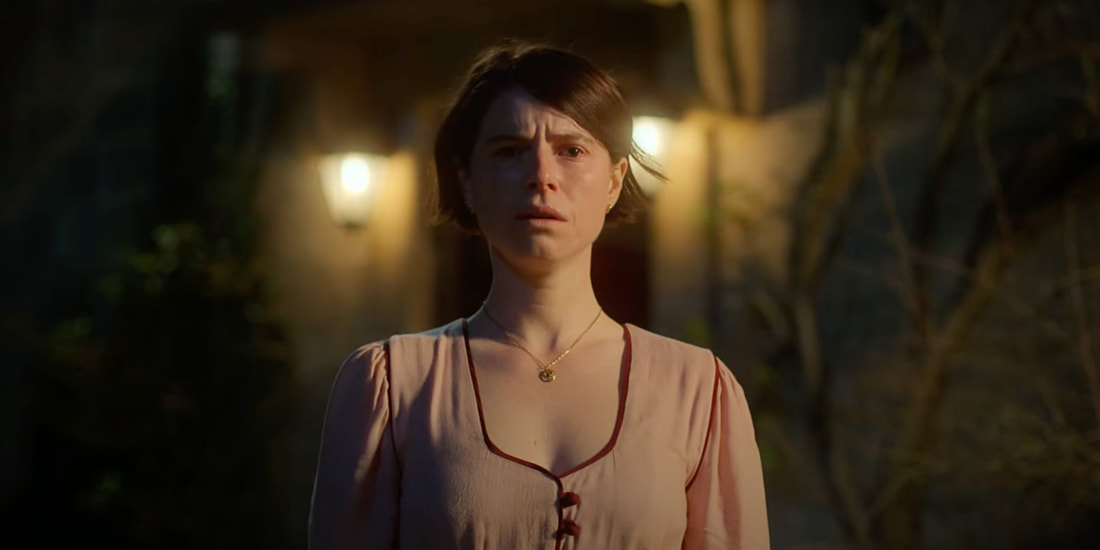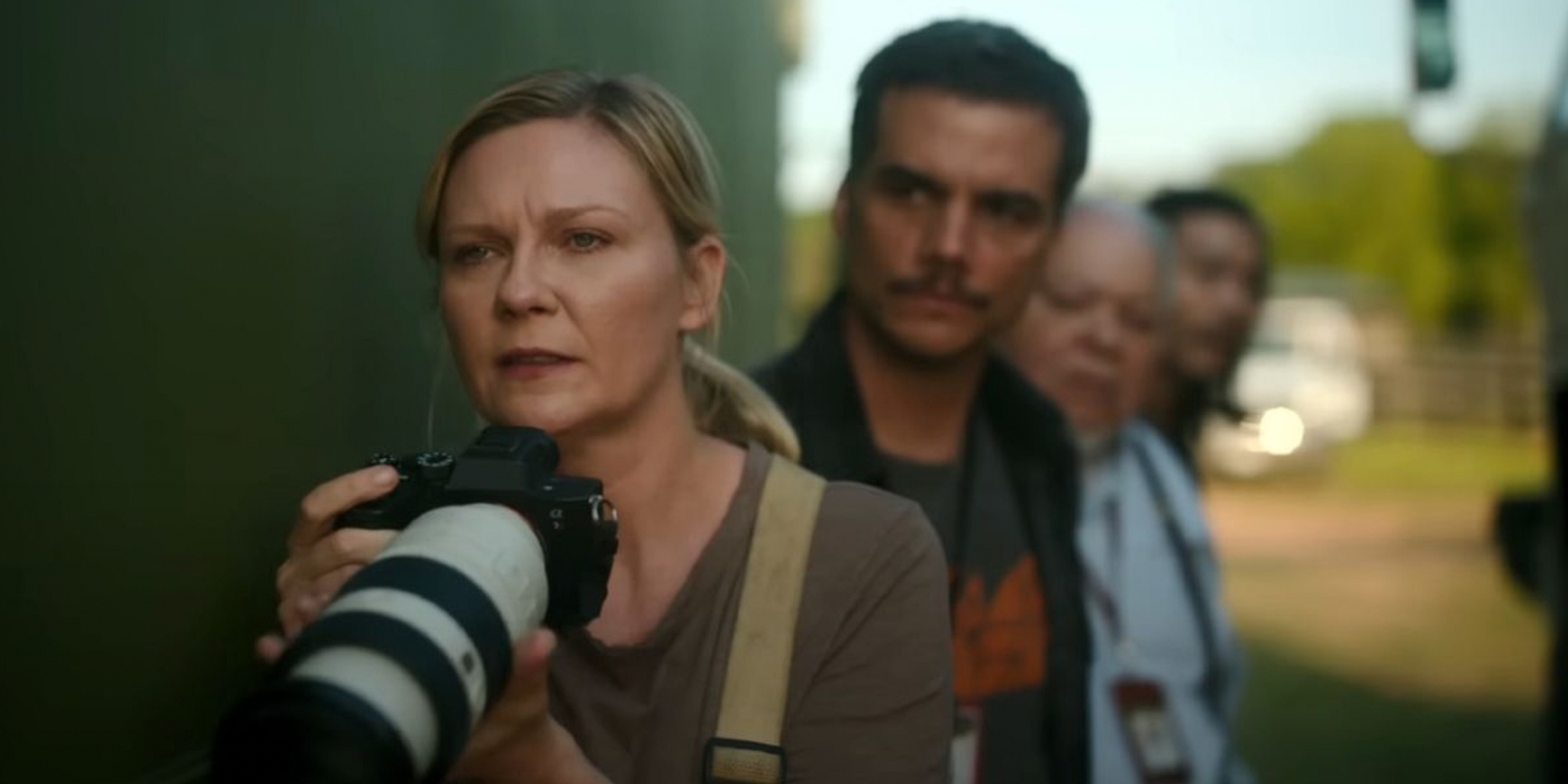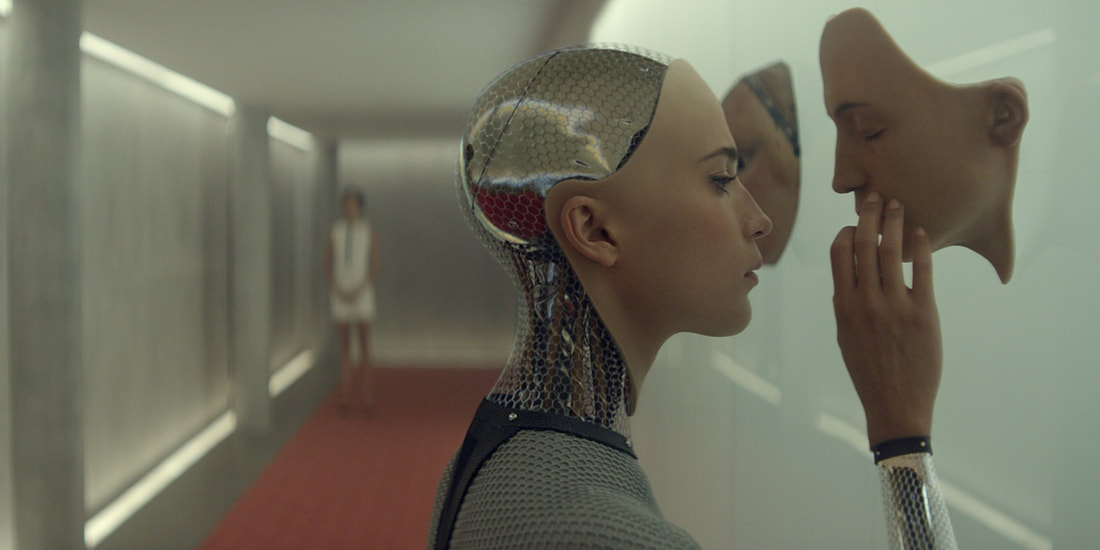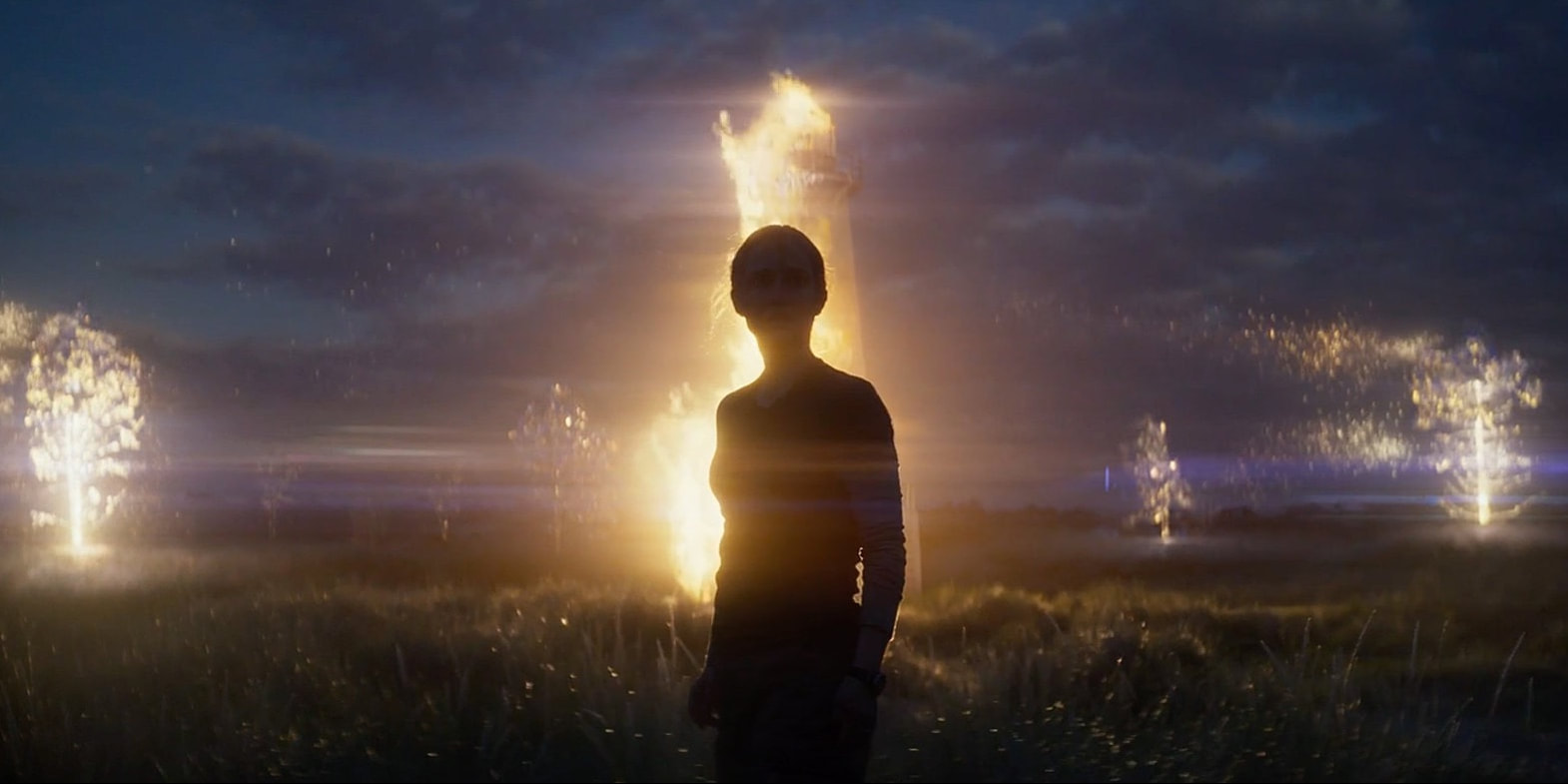Some famous directors begin as scrappy teenage filmmakers who work through their 20s to finally helm feature-length movies. London native Alex Garland had a slightly different path to his filmmaking career. Garland’s first major artistic exploits were novels, which led to him writing texts like “The Beach” and “The Tesseract.” The former book was adapted into a 2000 film of the same name by director Danny Boyle, who subsequently recruited Garland to pen the script for “28 Days Later.” This inaugural foray into screenwriting established the kinds of films with which Garland would be fascinated. He clearly has a fondness for high-concept projects (usually with sci-fi or horror overtones) that inhabit something discernibly like our world.
After spending more than a decade as a screenwriter – and reportedly functioning as an uncredited director on “Dredd” – Garland shifted into the director’s chair for 2015’s “Ex Machina,” which kicked off a string of major movies from him. These exploits encompassed “Annihilation,” “Men,” and the highly buzzed-about “Civil War.” With “Civil War” now hitting theaters, this is an optimal time to stroll down memory lane and examine Alex Garland’s work. Ranking his movies from worst to best, one can see that this director (like an artist) doesn’t have a spotless track record. However, it’s even more apparent that Garland, after just a decade of directing, has produced several motion pictures that will continue to spark discussions for years to come.
4. “Men” (2022) Its title and biggest scary moments make it apparent that “Men” has grand ambitions. It aspires to be the ultimate example of horror movie iconography reflecting the perils of feminine existence. However, where Garland’s third credited directorial effort really shines is simply in being a showcase for messed-up imagery. The most warped parts of the feature (including a lengthy climactic set piece for all the mpreg fans out there) show plenty of disturbing imagination. They also make for an effective clash with the brightly-lit, idyllic English countryside backdrop of most of the movie. Even the most terrifying sights can occur in “beautiful” spots.
Its title and biggest scary moments make it apparent that “Men” has grand ambitions. It aspires to be the ultimate example of horror movie iconography reflecting the perils of feminine existence. However, where Garland’s third credited directorial effort really shines is simply in being a showcase for messed-up imagery. The most warped parts of the feature (including a lengthy climactic set piece for all the mpreg fans out there) show plenty of disturbing imagination. They also make for an effective clash with the brightly-lit, idyllic English countryside backdrop of most of the movie. Even the most terrifying sights can occur in “beautiful” spots.
Unfortunately, a smattering of inspired pieces of bizarre images can’t save “Men” from feeling like only a shell of its potential. The biggest problem is it doesn’t really offer anything new. There are numerous other genre movies concerning women that deal with socially accepted misogyny. As such, “Men” can’t escape the shadow of its predecessors. It’s all too derivative of other, better horror titles covering similar thematic territory. Even the conceit of having Rory Kinner inhabit every “man” she comes across (including a young boy) doesn’t lend the proceedings much distinctiveness. “Men” wants to shock and awe. What a shame that, save for its most gruesome moments (and a mightily effective lead performance from Jessie Buckley), it’s mostly just forgettable.
3. “Civil War” (2024) For much of its runtime, “Civil War” is poised to become Alex Garland’s greatest directorial effort. That would be a fitting accomplishment, considering this story of four journalists navigating the Second American Civil War synthesizes recurring themes and motifs in Garland’s work. The crumbling American backdrop is the logical endpoint of the dystopian settings of “Annihilation” and “28 Days Later.” Similarly, depicting gruesome wartime skirmishes occurring in bright daylight is an effective expansion of Garland’s love for showing unspeakable horrors occurring in gorgeous confines. “Civil War” also continues Garland’s gift for wringing starkly human performances from actors inhabiting extremely heightened stories. Both Stephen McKinley Henderson and Kirsten Dunst are especially exceptional here.
For much of its runtime, “Civil War” is poised to become Alex Garland’s greatest directorial effort. That would be a fitting accomplishment, considering this story of four journalists navigating the Second American Civil War synthesizes recurring themes and motifs in Garland’s work. The crumbling American backdrop is the logical endpoint of the dystopian settings of “Annihilation” and “28 Days Later.” Similarly, depicting gruesome wartime skirmishes occurring in bright daylight is an effective expansion of Garland’s love for showing unspeakable horrors occurring in gorgeous confines. “Civil War” also continues Garland’s gift for wringing starkly human performances from actors inhabiting extremely heightened stories. Both Stephen McKinley Henderson and Kirsten Dunst are especially exceptional here.
Unfortunately, the best qualities of “Civil War” get put on the back burner in a gunfire-heavy third act. Folks who watch “Civil War” in IMAX will certainly feel like they got their money’s worth of searing spectacle from this climax. However, it’s a finale that’s too big for its own good. Up until that point, “Civil War” thrived on more intimate suspenseful sequences. Once the cavalry arrives (literally), the scope expands to such extremes that it’s hard to remain invested in what’s happening on screen. “Civil War” drops the ball in its ending. However, it does find time to crystallize some of Garland’s best attributes as a filmmaker.
2. “Ex Machina” (2014) The lasting legacy of “Ex Machina” in pop culture is one GIF. Specifically, it’s the one of Oscar Isaac dancing against brightly-colored neon lights. Ironically, the film that maximalist GIF hails from gets much of its power from restraint. “Ex Machina” keeps the saga of humanoid robot Ava (Alicia Vikander) confined to one place. There are only a handful of other cast members beyond Vikander and Isaac (the latter playing the robot’s creator). Garland’s other sci-fi exploits (like “Annihilation,” as well as his script for “28 Days Later”) go all over the map. They focus on protagonists constantly stumbling onto new characters. “Ex Machina,” meanwhile, is all about keeping things small and gripping.
The lasting legacy of “Ex Machina” in pop culture is one GIF. Specifically, it’s the one of Oscar Isaac dancing against brightly-colored neon lights. Ironically, the film that maximalist GIF hails from gets much of its power from restraint. “Ex Machina” keeps the saga of humanoid robot Ava (Alicia Vikander) confined to one place. There are only a handful of other cast members beyond Vikander and Isaac (the latter playing the robot’s creator). Garland’s other sci-fi exploits (like “Annihilation,” as well as his script for “28 Days Later”) go all over the map. They focus on protagonists constantly stumbling onto new characters. “Ex Machina,” meanwhile, is all about keeping things small and gripping.
“Ex Machina” creates tension by trapping a few human beings and a robot in a house. From there, audiences witness chaos slowly unfold as everyone’s different objectives collide. While telling the story through the eyes of human man Caleb (Domhnall Gleeson) robs the story of some of its maximum power, anytime the camera focuses on more intimate sequences depicting Ava’s quiet longing, “Ex Machina” soars. Geoff Barrow and Ben Salisbury’s score especially excels in those yearning-centric moments. Of course, the duo’s compositions as a whole are one of the star attractions of the entire movie. Given “Ex Machina’s” willingness to exhibit restraint on dialogue, Barrow and Salisbury’s work gets to shine. Relying so heavily on their compositions exemplifies why less is often more when it comes to filmmaking.
1. “Annihilation” (2018) Taylor Swift may be able to make the whole place “shimmer,” but even she wouldn’t be able to stand up against the might of The Shimmer. That term refers to a dangerous area of America that drives the plot of “Annihilation,” Garland’s 2018 directorial effort. It’s a domain from which nobody has been able to return. Naturally, biologist Lena (Natalie Portman) decides to go in, because she’s craving answers on the forces that led to her husband’s deadly disease. Her voyage inside is an immensely striking odyssey in sheer visual spectacle alone. That colorful yet ominous entrance to The Shimmer establishes the tone for the kind of imagery this realm produces. Viewers are left at once chilled to the bone, yet wowed by the beautiful carnage The Shimmer produces.
Taylor Swift may be able to make the whole place “shimmer,” but even she wouldn’t be able to stand up against the might of The Shimmer. That term refers to a dangerous area of America that drives the plot of “Annihilation,” Garland’s 2018 directorial effort. It’s a domain from which nobody has been able to return. Naturally, biologist Lena (Natalie Portman) decides to go in, because she’s craving answers on the forces that led to her husband’s deadly disease. Her voyage inside is an immensely striking odyssey in sheer visual spectacle alone. That colorful yet ominous entrance to The Shimmer establishes the tone for the kind of imagery this realm produces. Viewers are left at once chilled to the bone, yet wowed by the beautiful carnage The Shimmer produces.
“Annihilation’s” weakest storytelling elements are somewhat mitigated by those impressive visual flourishes. Garland – who adapted the film from a Jeff VanderMeer novel – tries to do a whole lot with “Annihilation.” Inevitably, he gets lost in the woods (no pun intended) trying to balance his various impulses and subplots. One supporting character, in particular, is distractingly written to be simply cannon fodder. Thankfully, all that ambition still results in some truly mesmerizing sequences. Best of all, the big swings here allow actors like Portman to lend serious gravitas to conceptually ludicrous material. Like most of Alex Garland’s directorial efforts, “Annihilation” is a bit disjointed. However, a beautiful apocalypse like The Shimmer puts this filmmaker’s greatest visual inclinations into overdrive.
What do you think of our list? What is your favorite film directed by Alex Garland? Have you seen “Civil War“ yet? If so, what did you think? Please let us know your thoughts in the comments section below or on our Twitter account.
You can follow Lisa and hear more of her thoughts on the Oscars & Film on her portfolio here


